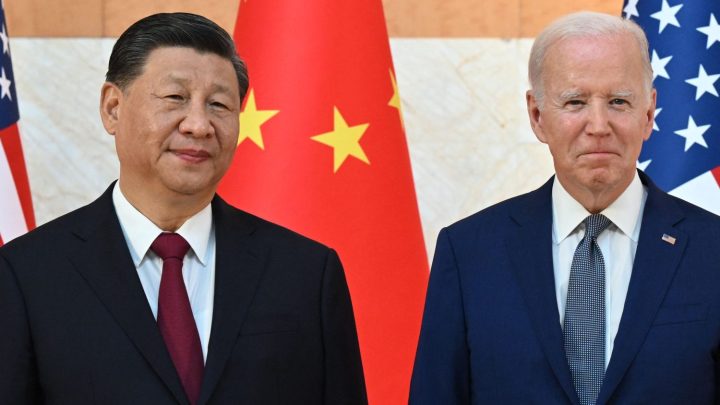
G-7 leaders expected to discuss China’s “economic coercion”
G-7 leaders expected to discuss China’s “economic coercion”

Starting Friday, G-7 heads of state — including President Joe Biden — will meet in Japan, and “economic coercion” may become the phrase of the week.
It refers to accusations by the group of wealthy nations and some of their allies that China has been exerting its economic power by refusing to buy certain products from countries that cross it.
There hasn’t been much of a coordinated response by the G-7, which comprises Canada, France, Germany, Italy, Japan, the U.K. and U.S.
But that could change.
There’s a long list of commodities that have been subject to this so-called economic coercion, said Matthew Reynolds of the Center for Strategic and International Studies.
“Salmon in Norway. Bananas in the Philippines. Canola in Canada. Shiraz in Australia. Barley also in Australia,” Reynolds said. China’s halt of these direct imports can last a few years, though sometimes less. But while they’re in place, “they are costly to the sectors and the firms that are targeted,” he said.
Reynolds said one solution could be a compensation fund, led by the U.S., for those firms and their home countries.
China, for its part, dismisses the idea that the way it does business is a problem and has accused G-7 countries, in turn, of using economic and military coercion.
“The Chinese see this as sort of unfriendly action, part of the U.S. containment strategy,” said Susan Thornton with Yale Law School’s Paul Tsai China Center. But she said that a simple G-7 statement of support for affected countries might be enough of a signal. Business interests would likely take note too, according to Gennadiy Goldberg, a U.S. interest rate strategist at TD Securities.
“If I am a manufacturer, and I have deep exposure to China, it would certainly make me think twice about investing in additional capacity,” he said.
But whatever the G-7’s final statement on the matter looks like, David Dollar, senior fellow at the Brookings Institution’s China Center, said don’t expect China to be called out by name.
“You’ve got dissent within the G-7 about how to deal with China,” and that’s going to limit what they’re willing to say, he said.
There’s a lot happening in the world. Through it all, Marketplace is here for you.
You rely on Marketplace to break down the world’s events and tell you how it affects you in a fact-based, approachable way. We rely on your financial support to keep making that possible.
Your donation today powers the independent journalism that you rely on. For just $5/month, you can help sustain Marketplace so we can keep reporting on the things that matter to you.

















